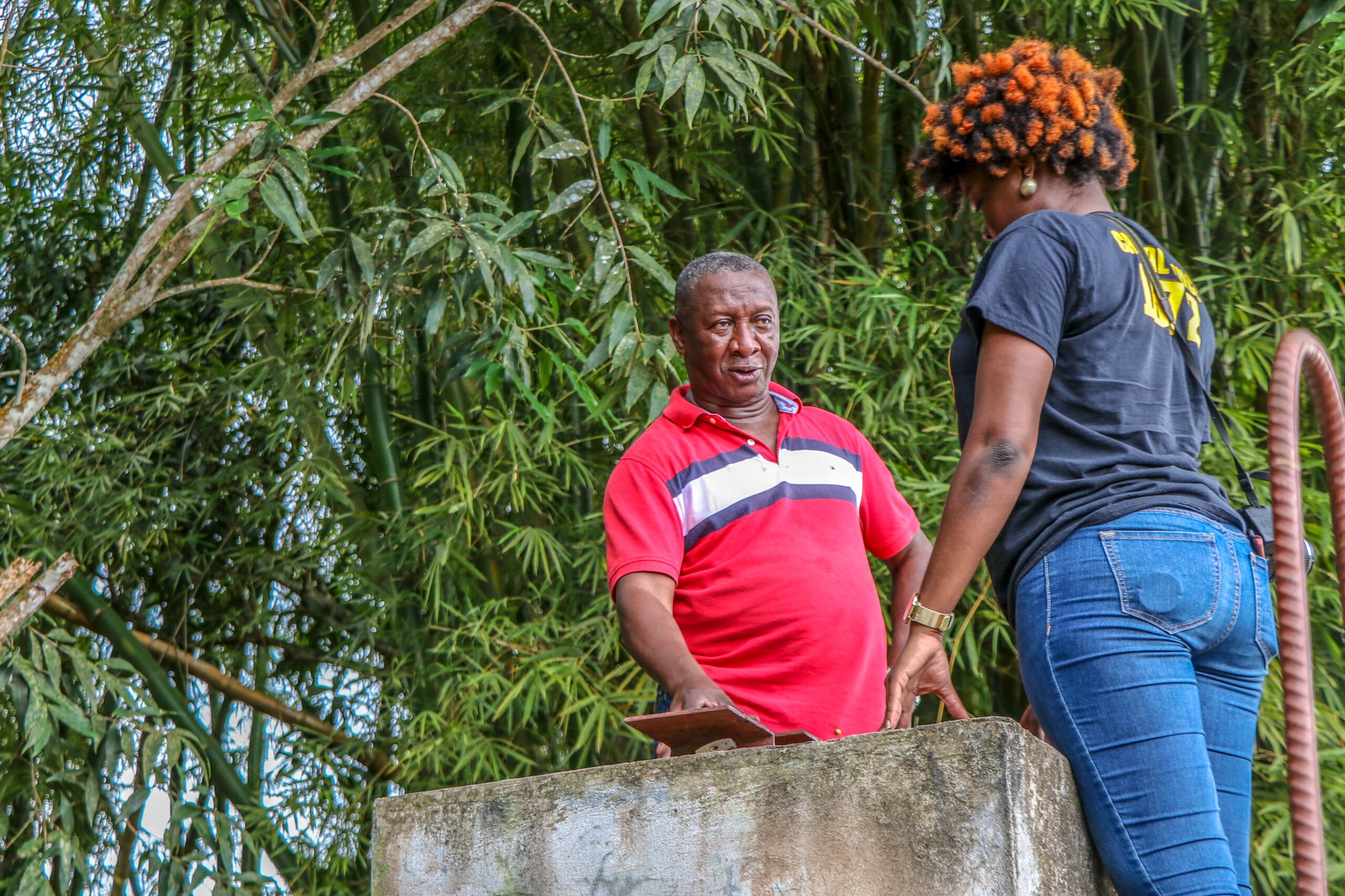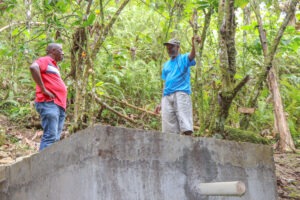
In Colouden, a rural community located in Jamaica’s Clarendon Parish, hundreds of residents are not connected to running water through the local water commission. Instead, resident Linton Hewitt would buy bottled water, which over time could be costly, or rely on nearby rivers to collect water for cooking, cleaning, and drinking.
“Before, I [had] to go to the river to bathe and catch water and buy water. Sometimes, I depend[ed] on the rainwater.” –Linton Hewitt, a Colouden resident
During droughts, Linton and hundreds of others who relied on the rivers or rainwater were left unprepared to face the damaging effects of climate change. The Jamaica Rural Economy and Ecosystems Adapting to Climate Change (Ja REEACH II) project, funded by the United States Agency for International Development and Jamaican government partners and implemented by ACDI/VOCA, is helping communities adapt to and mitigate climate shocks, such as drought.
In early 2018, Ja REEACH II provided a grant to the Colouden/Kraal Community Action Committee, which serves Linton’s community and others, to develop a new water system for harnessing and storing water from an underground freshwater spring.
Previously, these communities harnessed water through a catchment built in 2012. But in recent years, it began to leak due to poor design, and residents could no longer depend on it. This time, Linton would ensure the same problem did not occur.
“I was the one who drew the plan,” Linton said of the new water catchment. “When they built it that day, I was there from the morning to direct them how to do it.”
The new design involved a v-shaped, concrete wall filled with large stones that funnel the spring water into the catchment. The placement of the stones helps disperse the flow of water more evenly to prevent overflow and loss.

A new water storage tank is also improving the communities’ disaster preparedness. It was installed using Ja REEACH II funding. More than 200 people from three districts now have access to stored water should a drought or other weather event occur. In addition, six water pumps installed throughout the area now provide the main source of water for those living in the MacDaniel, Bray Head, and Colouden districts.
Linton, like many others, bought his own pipes to connect to the water system as well as small tanks, which he shares with his neighbors, to store water at home. This disaster risk reduction strategy means Linton has a backup when water levels are low, or when the water is shut off to temporarily direct it to other districts.
Natural disasters are among the main drivers of malnutrition worldwide, and access to clean water is a vital step toward health and well-being. Linton and those in his community are now better prepared to face water scarcity and protect their lives and businesses.
Over four years, the Ja REEACH II project has trained 3,709 people like Linton in climate change adaptation and improved the capacity of 127 Jamaican institutions to assess or address climate change concerns.
Watch a short video featuring Linton Hewitt.
Learn more about the Jamaica Rural Economy and Ecosystems Adapting to Climate Change II (Ja REEACH II) project.
Learn more about our work in Jamaica.








